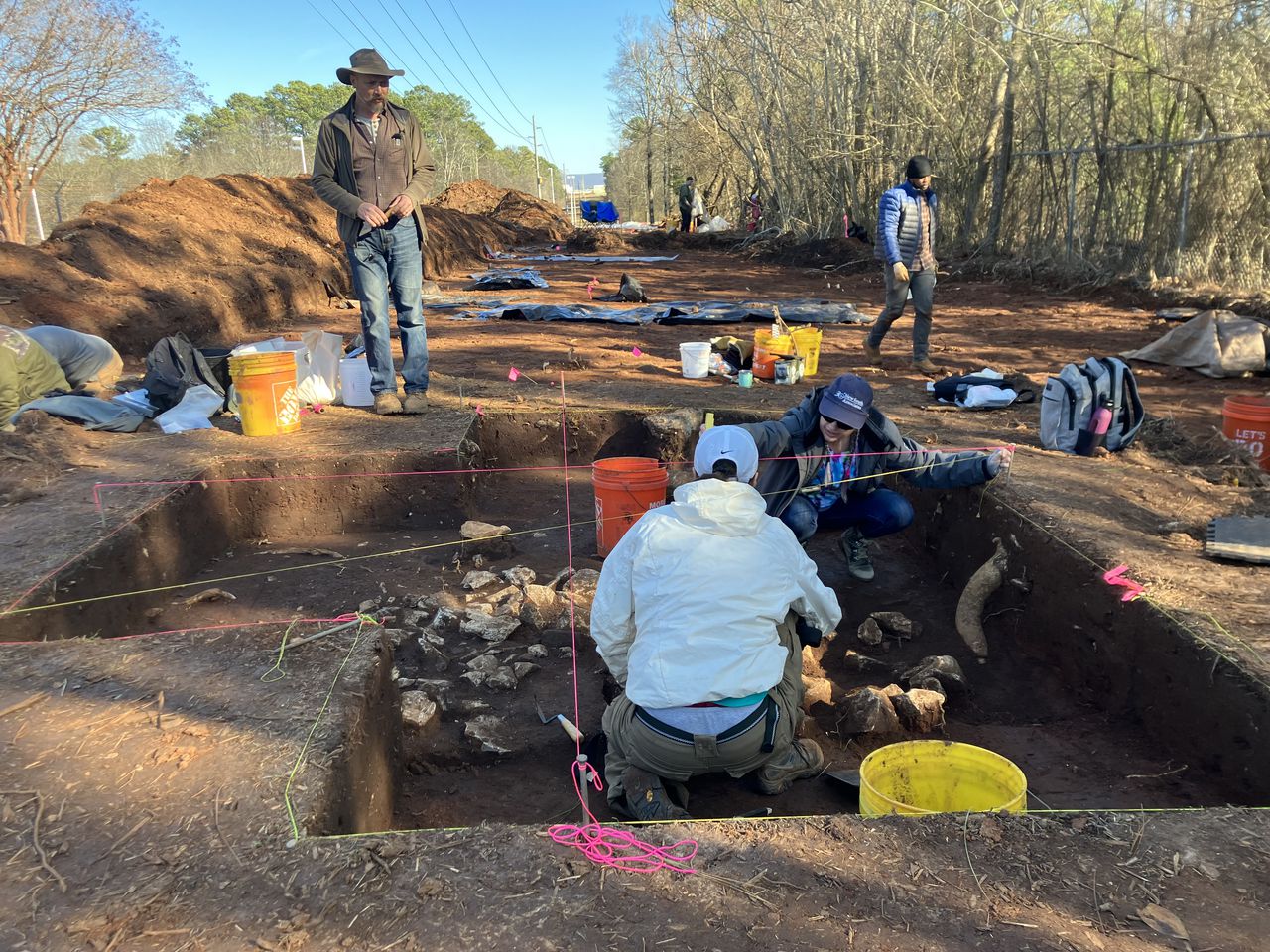Plantation site on Huntsville’s Redstone Arsenal yields ‘trove’ of 19th century artifacts
Archeologists and volunteers on Redstone Arsenal Friday were digging, documenting and photographing items they unearthed on land that has served humans as ancient hunting grounds, home to an antebellum plantation and lastly a Black-owned farm before becoming part of Huntsville’s federal and military base.
Starting in late November, the digging crew has found things including a stone arrowhead left by a hunter as early as 5,000 years ago. But the main dig site is where a plantation home sat in the 1830s and 1840s. Its owner was Isham J. Fennell, one of Alabama’s largest and wealthiest plantation owners who had thousands of acres under production across the state before the Civil War. This was his primary residence.
The property was subdivided and sold in the early 20th century, Redstone Arsenal Cultural Resource Manager Ben Hoksbergen said Friday. Hoksbergen leads a crew of 10 contracted excavators and several trained volunteers working at the site just east of NASA’s Marshall Space Flight Center headquarters. The area being excavated was bought in 1919 by Moses Love, a local African-American farmer. Love sold the land to the U.S. government in 1943 as part of the federal land buy to build the Huntsville Arsenal.
In 2019, contractors made “small-scale excavations on the site to evaluate its significance,” Hoksbergen said. They “uncovered a portion of a large, rectangular cellar filled with artifacts dating to the mid-19th century and determined that the site was significant and eligible for listing on the National Register of Historic Places.”
Modern digs start with ground-penetrating radar to find those buried cellars and other “features,” or areas worth exploring, archeologist Anne Dorland said. Archeologists and volunteers carefully remove the dirt to see what’s been left behind. It can be buttons, nails, belt buckles or porcelain – all found at this site. Key finds have ranged from an early 19th century spoon to a Stone Age arrowhead.
Finding where to scan isn’t hard as it might seem, Dorland said. Quoting Hoksbergen, she said, “Any high, flat space with water, people have lived there through history.”
The team found more “features” than expected so the dig will continue for some time. After that, artifacts and documents related to the dig will be permanently curated at the Erskine Ramsay Archaeological Repository in Moundville, Alabama. “Efforts will be made to put significant artifacts and information from the site in an interpretive display somewhere on the Arsenal or surrounding community,” Hoksbergen said. “The findings of the dig will be detailed in a technical report that will be made available to local public libraries.”
As for the site itself, it will eventually be cleared for development. It is slated for a construction project for one of the arsenal’s tenant organizations, Hoksbergen said, but he declined to name the tenant. Other arsenal sources said it is not the site proposed for the new U.S. Space Command headquarters building. The arsenal and the Huntsville area are awaiting a final decision on the command’s permanent home after a competition that ranked Redstone the No. 1 location. The headquarters site announcement is expected soon.
